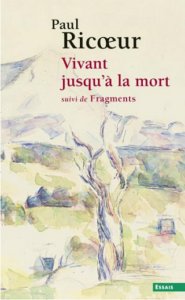
Philosophy and the question of death
Talking about death is both an instigating and terrifying topic, at least for those who believe that everything concludes in our earthly life cycle, philosophy has always addressed it.
that everything concludes in our earthly life cycle, philosophy has always addressed it.
From Socrates and Plato (428-347 BC) to Heidegger (1889-1976) passing through Arthur Schopenhauer (1788-1860), philosophy did not shy away from addressing the theme, Schopenhauer even stated that “death is the muse of philosophy” and Socrates had already said that philosophy is like a “preparation for death”.
In Plato’s Fedón he describes the philosophical life as a “training for death”, there is in it an “ethos” of human life, for which it can be said without exaggeration that it is a “training” and this makes us reflect on the delusions contemporaries of “entertainment until death”.
It can be objected that Plato considered the soul immortal, but Schopenhauer and Heidegger did not, it is true that the latter had a brief foray into Christianity, but later abandoned it, the core of his ontological thinking is what this Being-there, this Dasein is , ex-assistential and human.
Contradicting the fleeting contemporary life, Socrates said that “there is no life well lived that cannot be examined” while Heidegger will affirm that life facing death (we cannot forget that there is the impossibility of existence) is what makes us think outside the world of the “I”, of the alienating voice of society, of the mass media, and of conceiving the world in a utilitarian and transitory way.
Heidegger will use the term “stimmung” which can be translated as “intone”, to compare a tuning instrument, with which he refers to anguish or other animic states (of affective dispositions), using his metaphor as out of tune instruments in the face of life.
Other philosophers such as Paul Ricoeur will remember human “finitude”, to remind him that it is fallible, if Heidegger speaks of Being-towards-death as finitude, Ricoeur characterizes it as an impulse towards life (being against death).
Whatever the approaches, human finitude, life “well lived and examined” is full life.
Ricoeur, P. (2007) Vivant jusqu’à la mort – suivi de Fragments. Paris: Editions Seuil.









